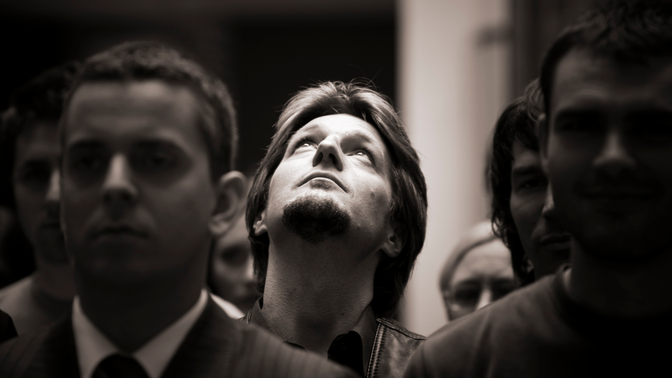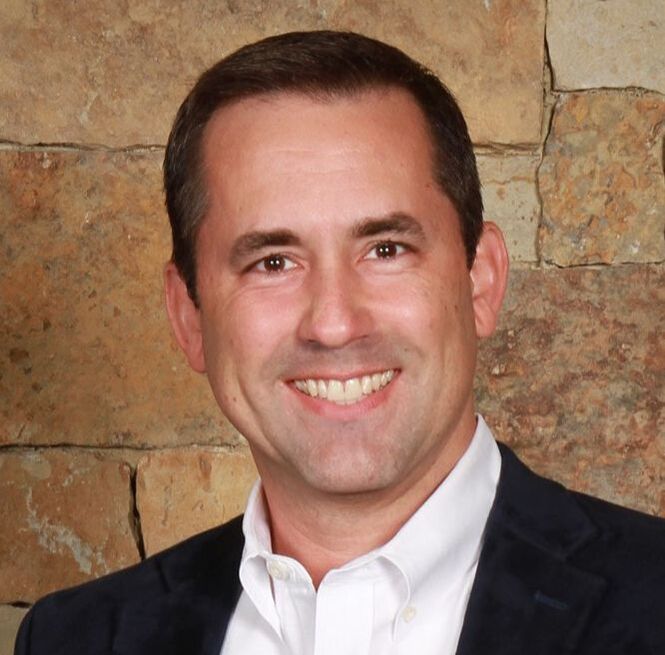- HOME
- ABOUT
- BLOG
- BOOKS
- Photo Gallery
- CONTACT
- ROMANS - More than Conquerors
- Celebrating God's Design
- The School of the Spirit
- Higher-Level Living
- Building Your Home on the Rock
- Money on a Mission
- PRAYER - The Secret Place
- BEATTITUDES - The Blessed Life
- JAMES - Live it Out
- God's Plan for His Church
- Pre-Marital Counseling
 I appreciate restaurants that give you the option of making reservations. It keeps you from waiting for a long time to be seated. I've been to a couple of concerts and a couple of ball games where I had to have a ticket to get a seat. That ticket was a reservation for me. It didn't matter how packed everything was. It didn't matter how many people were thronging into the building. I had a ticket. Not only could I get into the venue, but I also had a specific seat. I could rest with confidence because my reservation was settled. Peter writes about the child of God’s inheritance being reserved and secure! He writes, 1 Peter 1:3–5 (NKJV) 3 Blessed be the God and Father of our Lord Jesus Christ, who according to His abundant mercy has begotten us again to a living hope through the resurrection of Jesus Christ from the dead, 4 to an inheritance incorruptible and undefiled and that does not fade away, reserved in heaven for you, 5 who are kept by the power of God through faith for salvation ready to be revealed in the last time. He says that you have an inheritance, that you are an heir of the kingdom of God. You are a child of the King. No one could be richer. Think about the wealthiest people in this world. If they do not have Christ, they are vagabonds compared to your wealth as a child of God. Do you know what the word “reserved” means? In Greek, it conveys the idea that you are not reserving it yourself. God is reserving it FOR you. It is in the past tense, which means this reservation happened in the past. How could it have happened in the past if someone gave their life to Christ years after this verse was written? Because God stands outside of time. He saw when you would give your life to Him. He even saw that before you were born. God sees it all at a glance, and He says, “There was a time in the past when I gave you an inheritance, and I have reserved it since.” This phrase also conveys that it continues on until today and even into tomorrow. God is STILL reserving your inheritance. What does that do for today? You say, "Look how difficult my life is right now." This does not minimize your current difficulties. We're not talking about mere positive thinking. We are describing the reason for our hope in Jesus Christ. Why can we be hopeful when the days are dark?
You can “take heart” because you have an inheritance reserved in heaven for you, and that reservation will not go away. He says it's “undefiled,” “incorruptible,” and “will not fade away.” Isn’t that reassuring? Doesn’t that give the believer hope? No matter what may be going on today, Jesus said in John 14:1, "Let not your heart be troubled. If you believe in God, believe also in me. In my Father's house are many mansions. If it were not so, I would have told you. I go to prepare a place for you. And if I go and prepare a place for you, I will come again and receive you unto myself, that where I am there ye may be also." The reservation is for you, and God Himself has kept that reservation for you. "Father, thank You for my inheritance in Christ. You have reserved it for me, and it is mine. Lord, may I be reminded of this when the unexpected happens. I praise You that You know the end from the beginning. Nothing surprises You. I trust You, today. In Jesus’ name, Amen.”  Pulitzer Prize winner, Joseph Hallinan, wrote an article on hope, in which he shared research done in the 1950s by Kurt Richter, professor at Johns Hopkins University. He wrote: In the 1950s, he conducted a gruesome experiment with domesticated and wild rats. He first took a dozen domesticated rats, put them into jars half-filled with water, and watched them drown. The idea was to measure the amount of time they swam before they gave up and went under. The first rat, Richter noted, swam around excitedly on the surface for a very short time, then dove to the bottom, where it began to swim around, nosing its way along the glass wall. It died two minutes later. Two more of the 12 domesticated rats died in much the same way. But, interestingly, the nine remaining rats did not succumb nearly so readily; they swam for days before they eventually gave up and died. Now came the wild rats, renowned for their swimming ability. The ones Richter used had been recently trapped and were fierce and aggressive. One by one, he dropped them into the water. And one by one, they surprised him: Within minutes of entering the water, all 34 died. “What kills these rats?” he wondered. “Why do all of the fierce, aggressive, wild rats die promptly on immersion and only a small number of the similarly treated, tame, domesticated rats?” The answer, in a word: hope. “The situation of these rats scarcely seems one demanding fight or flight—it is rather one of hopelessness,” he wrote. “[T]he rats are in a situation against which they have no defense … they seem literally to ‘give up.’” Richter then tweaked the experiment: He took other, similar rats and put them in the jar. Just before they were expected to die, however, he picked them up, held them a little while, and then put them back in the water. “In this way,” he wrote, “the rats quickly learn that the situation is not actually hopeless.” This small interlude made a huge difference. The rats that experienced a brief reprieve swam much longer and lasted much longer than the rats that were left alone. They also recovered almost immediately. When the rats learned that they were not doomed, that the situation was not lost, that there might be a helping hand at the ready—in short, when they had a reason to keep swimming—they did. They did not give up, and they did not go under. “After elimination of hopelessness,” wrote Richter, “the rats do not die.” There are obviously many differences between humans and rats. But one similarity stands out: We all need a reason to keep swimming.[1] We are looking at First Peter, where the writer is telling his audience to “keep swimming,” or “remain hopeful”. In the previous blog post, we looked at how Peter encouraged Christians to look at how big our God is. Peter does not complain but gives them a reason to “keep swimming” and lets them know that they can have hope for tomorrow. He writes, 1 Peter 1:3–5 (NKJV) 3 Blessed be the God and Father of our Lord Jesus Christ, who according to His abundant mercy has begotten us again to a living hope through the resurrection of Jesus Christ from the dead, 4 to an inheritance incorruptible and undefiled and that does not fade away, reserved in heaven for you, 5 who are kept by the power of God through faith for salvation ready to be revealed in the last time. Peter is writing to them in First Peter because the persecution is getting worse in Rome and will intensify in the colonies where they are living as well. In the first century, it was a dark time politically. Nero was on the throne, continuing the persecution of the Christian body. It was a dark time economically. 50% of the people in that society were enslaved. The Christian Church had both slaves and masters represented in their bodies. Peter is writing to people who are experiencing dark days, but he doesn't start with their problems. In this passage, Peter is encouraging Christians to look beyond their current circumstances and find hope in their new life through Jesus Christ. After he expresses praise to God, he describes the reason Christians can be hopeful. 1 Peter 1:3-4 says that God has given us new life and a living hope through the resurrection of Jesus Christ from the dead. The reason for this hope is threefold: firstly, we have been born again and regenerated by the Holy Spirit; secondly, we have been begotten by God; and thirdly, we have the assurance of eternal life through our faith in Jesus Christ. Have you ever wondered if you are truly a child of God? Well, let me ask you a question. How can you be sure that you were ever born? You might say that you have pictures of yourself as a baby, but how do you know those pictures aren't fake? You might say that your family members have told you that you were born at a certain time, but what if they were lying? You might even show a birth certificate, but what if that was forged? And even if you have prints of your baby feet, your feet are grown now and don't look the same. But the simple answer is that you are alive today, and that's all the proof you need that there was a time when you were born. Someone may ask the question, "how do I know that I'm born again?" In John 3:3, Jesus said that unless you're born again, you cannot enter the kingdom of heaven. To be “born again” means to receive God's life on the inside, to become a new creature in Christ. The old has passed away, and the new has come (see 2 Corinthians 5:17). But how do you know if you've truly received the life of God on the inside? How can you be sure that you've been born again, begotten by the Holy Spirit? Walking down an aisle, raising your hand, getting baptized, or signing a card are all outward signs of your faith, but they do not necessarily prove that you have been born again. You can do all of those things and still not experience the life of God on the inside. So, how do you know you're born again? It is because you have new life on the inside. You have been begotten by God. 1 John 3:9 says, "Whoever has been born of God does not sin," but this does not mean that you will never sin again. The Greek tense of the word “sin” here expresses a lifestyle of sin. It means that you will not continue a lifestyle of sin. We all stumble and fall, but as believers, we confess our sins and ask for forgiveness, and God is faithful to forgive us. The person who is lost has a lifestyle of sin. However, though a child of God may sin, it can be the exception to the rule. It is not the lifestyle of the believer. One young man was struggling with his salvation, questioning whether he was a Christian or not. When his godly father asked him how he felt about sin, the young man replied that he didn't want to sin. His father told him that this desire not to sin was a sign that he had experienced the life of God on the inside, making him a child of God. There are three reasons why we can rejoice and be confident in our faith. First, we have experienced new life within ourselves. Second, we have a living hope that gives us confidence and assurance. Third, we have a living Savior in Jesus Christ, who rose from the dead on the third day to prove that He is the Son of God and that He is able to forgive our sins. As a child of God, you have experienced a new birth, and nothing can change that. You also have a living hope that gives you confidence and assurance in your faith. And you serve a living Savior in Jesus Christ, who forgives your sins and gives you a destined home in heaven. So, no matter how bad things may get in this life, you can be optimistic about your tomorrow because you have a promised home in heaven. “Dear God, thank You for sending Your Son, Jesus to give me a living hope. I trust You for salvation, and I have been born again by the Holy Spirit. I pray You remind me of this hope as I go through my day. I pray that I remember the promised future I have in heaven with You. In Jesus’ name, amen.” [1] https://www.psychologytoday.com/us/blog/kidding-ourselves/201405/the-remarkable-power-hope, accessed 3/19/2024.  Jay Wallace Hamilton once said, “When there’s no hope for the future, there’s no power in the present.” When we don't have something that we're longing for, or looking forward to, or seeing something that will change for the better, we don't have the power to make it today. The great need for today is hope. Robert Morgan once wrote, "In his book, Man’s Search for Meaning, Viktor Frankl tells of his years trapped in the indescribable horrors of Auschwitz and Dachau. He was transported there like a despised animal, given two minutes to strip naked or be whipped, every hair was shaved from his body, and he was condemned to a living death. His father, mother, brother, and wife died in the camps or were sent to the gas ovens. His existence was full of cold, fear, starvation, pain, lice and vermin, dehumanization, exhaustion, and terror. "Frankl wrote that he was able to survive because he never lost the quality of hope. Those prisoners who lost faith in the future were doomed. When a prisoner lost hope, Frankl said, he let himself decline, becoming subject to mental and physical decay. He would die from the inside out. "Frankl said that this usually happened quite suddenly. One morning a prisoner would just refuse to get up. He wouldn’t get dressed or wash or go outside to the parade grounds. No amount of pleading by his fellow prisoners would help. No threatening by the captors would have any effect. Losing all hope, he had simply given up. He would lay there in his own excrement till he died. American soldiers later told Frankl that this behavior pattern existed also among prisoners of war, and was called 'give-up-itis.' "When a prisoner lost hope, said Frankl, 'he lost his spiritual hold.'”[1] Pulitzer Prize winner, Joseph Hallinan, wrote, “Last month, in Nashport, Ohio, a couple who held hands at breakfast every morning, even after 70 years of marriage, died 15 hours apart. The couple's eight children say the two had been inseparable since meeting as teenagers, once sharing the bottom of a bunk bed on a ferry rather than spending even one night apart. "We knew when one went, the other was going to go," their daughter told the local newspaper.”[2] In essence, they died because they had just given up hope. Is there something to hope? Can hope change your circumstances? Does the hope you have for tomorrow give you power to live in the present? Christians can experience hope even in dark circumstances. During the first century, the Christian community in Rome faced persecution. They were misunderstood, mistreated, and maligned for their Christian faith. As a result, these first-century Christians were cast out of Rome, and many found their way to Roman colonies throughout the known world at the time. The Christians had to start over in these new communities due to being displaced. In verse one, Peter calls these believers “pilgrims.” We might call them “refugees”. The Contemporary English Version says, “To God’s people who are scattered like foreigners.” Peter writes this book not to complain, but to give them courage and let them know that they can have hope for tomorrow. He writes, 1 Peter 1:3–5 (NKJV) 3 Blessed be the God and Father of our Lord Jesus Christ, who according to His abundant mercy has begotten us again to a living hope through the resurrection of Jesus Christ from the dead, 4 to an inheritance incorruptible and undefiled and that does not fade away, reserved in heaven for you, 5 who are kept by the power of God through faith for salvation ready to be revealed in the last time. It's interesting that he doesn't start with their problems. He will talk about their sufferings later on in the book, but he starts with a note of praise. He says, "Blessed be the God and Father of our Lord Jesus Christ." He wants them to look up and gain a different perspective, one of rejoicing. The word "blessed" in English means “fortunate, favored, and happy.” However, this word in Greek is entirely different. It's where we get the word "eulogy" from, which means to “speak well of someone.” Peter starts off by saying, "Let's have a great word for Jesus. Let's sing a song about our blessed God. Let's think and talk about something that God has done in our lives." This changes the perspective from our problems to God's power to solve them. We ought to rejoice no matter our circumstances. It could be dark in your life, but blessed be the God and Father of our Lord Jesus Christ; God has done something great in our lives. It's changing our perspective. I haven't been to a Harvard football game, but I heard a humorous story about one of their games. The Harvard student section during football season oftentimes loses to state schools like Virginia Tech or Virginia, and when the opposing team scores a touchdown, the student section has come up with a chant that goes something like this: "That's all right, that's okay, you're going to work for us someday." These Harvard students realized that they may not beat other schools in football, but they may beat them in business. This is a reminder that no matter what you're facing, there's always a way to change your perspective. You may be ridiculed at work because you're the only Christian, or you may be married to an unbeliever who mischaracterizes your faith. You may have a target on your back in school because of your Christian convictions. Peter says, “Let’s lift up our eyes to God, Who remains on His throne! Let’s rejoice!” We should take the magnifying glass off of our problems and put it on a God who is big enough to solve them. This reminds me of Psalm 34:1-3, which says, "I will bless the LORD at all times; His praise shall continually be in my mouth. My soul shall make its boast in the LORD; The humble shall hear of it and be glad. Oh, magnify the LORD with me, And let us exalt His name together.” “Dear God, thank You for all Your blessings. Today, I magnify You. I exalt You. I bless Your name. Help me take the focus off of my problems. Thank You for Your power to help me through today. In Jesus’ name. Amen.” [1] Robert J. Morgan, Nelson’s Complete Book of Stories, Illustrations, and Quotes, (Nashville: Thomas Nelson Publishers, 2000), 449–450. [2] https://www.psychologytoday.com/us/blog/kidding-ourselves/201405/the-remarkable-power-hope, accessed 3/19/2024.  Social media is often praised for its ability to connect people, but it also comes with its own set of dangers. Despite the fact that we identify with each other in social communities, we often become confined to our own little groups and aren't exposed to different perspectives. In 2017, Facebook founder Mark Zuckerberg highlighted the potential of social media to bring people together during a speech in Chicago. He presented Facebook's plans to broaden its platform and connect people with each other. Zuckerberg believed that this would not only reverse the decline in community membership but also strengthen our social fabric and bring the world closer together. And, of course, we can see some of the strengths of social media. We can see how it connects people virtually who are not able to connect physically. It's a great way to reconnect with old friends you may have lost touch with over the years or get to know new people. However, he took it one step further, and this is what really grabbed my attention. He claimed that Facebook was becoming the new church[1] in light of recent national declines in church attendance. He highlighted how Facebook is forming new communities. In Analog Church, Jay Kim shared this story and also provided a rebuttal from Peter Ormerod, a journalist writing an article entitled “Mark Zuckerberg, the Church of Facebook Can Never Be. Here’s Why”[2]: “[A]t their best, churches offer a perspective on life fundamentally opposed to the culture Facebook encourages and upon which it feeds… “For one, churches are messy. They are not organised by any algorithm or tailored to the individual end user. Far from it: a church service is not made for any one person… “We can’t just flick past the bits we don’t like: we are confronted with discomfiting Bible passages, impenetrable mysteries, harrowing truths. Unlike Facebook, a church tells us that we are not at the centre of the world. “Rather than encouraging us to show off our best side at all times, a church compels us to examine ourselves in the round, to face up to those things about ourselves that we would like to pretend aren’t there… “Facebook meanwhile presents us with impoverished, narrowed versions of ourselves – the version we think most of our friends think we are, all the better for those likes and shares. And churches, at their best, bring us into contact with people we would never think of as friends. There are cliques, of course. But we all come to the same table and drink from the same cup and sing the same songs and say the same prayers… “It’s a breaking down of barriers, an awareness of mutual responsibility and dependence, a celebration of brokenness. It’s an unsanitised experience of humanity, and all the healthier for it… “[A] good church is more than just a social network: it’s a place of transcendence, space, silence, peace, devotion, richness and depth. No matter how grand Zuckerberg’s visions may be, they will never compete.” He is essentially saying that a good church is so much more than just a social network, and because of that, the church will never have to compete with the likes of Facebook or other social media platforms. Scot McKnight writes, “The church is God’s grand experiment, in which differents get connected, unlikes form a fellowship, and the formerly segregated are integrated. They are to be one.” When I'm using social media or any other online platform, I often find myself interacting only with people who share my beliefs and values. This creates an echo chamber where we only hear our own opinions and perspectives. Meanwhile, other groups are isolated in their own echo chambers, leading to division when we finally come together. Social media platforms unintentionally (or maybe intentionally) cause unnecessary division among people. However, God's grand experiment called the church was designed to bring together people from all backgrounds under one roof. The church unites us under the banner of Jesus Christ, recognizing that His blood was shed for all of us, giving every single person the opportunity to have a relationship with God. It's important to understand that as followers of Christ, we are not only related to God, but we are also related to one another. When we accept Jesus as our Lord and Savior, we become brothers and sisters in Christ. It doesn't matter if we have never met in person; if we share the same faith in Jesus Christ, we are family. These are relationships that will last throughout eternity. In Ephesians 2:14, Paul explains that Jesus breaks down the barriers that exist in our society. Ephesians 2:14–18 (NKJV) 14 For He Himself is our peace, who has made both one, and has broken down the middle wall of separation, 15 having abolished in His flesh the enmity, that is, the law of commandments contained in ordinances, so as to create in Himself one new man from the two, thus making peace, 16 and that He might reconcile them both to God in one body through the cross, thereby putting to death the enmity. 17 And He came and preached peace to you who were afar off and to those who were near. 18 For through Him we both have access by one Spirit to the Father. Ephesians 2:19, in the Living Bible, adds, “Now you are no longer strangers to God and foreigners to heaven, but you are members of God’s very own family, citizens of God’s country, and you belong in God’s household with every other Christian.” He brings together people who come from different backgrounds, whether they are Jewish or Gentile, circumcised or uncircumcised. Jesus is our peace, and he has broken down the walls of separation between us and God, as well as the walls that separate us from each other. The blood of Jesus reconciles us to God, bringing together sinful man and holy God. But it also brings us together as a community of believers. There are no longer "uss" and "thems." Instead, we are all one family, united by our faith in Jesus. We may be different from one another, but instead of being separated, we are brought together by the blood of Jesus. If we have given our life to Jesus and said, "Jesus, be my Lord and be my Savior," we are family. “Dear Lord, thank You for bringing me close to You through what Jesus did on the Cross. Thank You also for bringing me into Your family. I belong with You for eternity, and I belong with my brothers and sisters as well. I pray I never take Your church for granted. In Jesus’ name, amen.” [1] https://nypost.com/2017/06/29/mark-zuckerberg-says-facebook-is-the-new-church/ [2] https://www.theguardian.com/commentisfree/2017/jun/29/mark-zuckerberg-church-facebook-social-network  Adrian Rogers once saw a picture and an article that caught his attention from The Houston Chronicle. This picture, which was on the front page, showed a woman who had her ear on a man’s chest. The man was not her husband, nor was he her son, nor was he related to her in any way, and yet she had her ear on his chest. The reason was because the man that she had her ear up to his chest was a man who’d received a heart transplant, and the heart transplant that he had received was the heart of this woman’s son. She was listening to the heartbeat of her own son. Rogers shared this application with his audience, “When I saw that, I thought, ‘O my God, could You put Your ear to my chest and hear the heartbeat of Your Son?’”[1] Matthew 9:36-38 shows the heartbeat of Jesus. It reads, “36 But when He saw the multitudes, He was moved with compassion for them, because they were weary and scattered, like sheep having no shepherd. 37 Then He said to His disciples, ‘The harvest truly is plentiful, but the laborers are few. 38 Therefore pray the Lord of the harvest to send out laborers into His harvest.’” When Jesus looks at this world, He has compassion for us. Men, women, boys, and girls need to hear about Jesus. Many churches and Christian organizations are striving to reach them. The real question is: What are you, personally, doing to be a part of God’s work in the world? I once heard a preacher share a simple but pointed statement: “Do something, lest you do nothing.” We all can do something. I remember seeing my own dad’s heart for God’s work when I returned from a short-term international mission opportunity. When he was younger, he, too, had been on short-term mission trips. At this point, physical challenges caused him to need to stay close to medical care in the US. He couldn’t travel like he once did. I wanted to share with him some of the things that we did while we were there. I told him how we were distributing Bibles. We were sharing the Gospel. We encouraged the believers and churches. After I was done talking, he was lying on his back and he sincerely asked me, “Josh, next time you go, would you take me with you?” I told him that I couldn't take him overseas because hospitals were not close by. He pressed further, “I won’t get in the way. Take me with you next time. I just want to help.” I told him that he just physically couldn’t right then. However, I told him that his passion and heart to be a part of God’s work in the world were a testimony to me and everyone who knew him. If he COULD go, he WOULD go. What about those of us who can go or can take part in ministry opportunities. Some can teach the Bible. Some can love on babies, while their parents are in worship service. Some can tell boys and girls about Jesus. I know some cannot, and I would not want to heap guilt upon them. That’s part of the reason I wanted to share that story about my dad’s heart on full display. However, there are those who can be engaged in God’s work but choose not to participate. We can list many reasons why we can’t right now:
The real question we should ask ourselves is when God sees the laborers, and the great harvest – does He count you as one of His laborers? Let God’s compassion for lost humanity move us to the point where we say, “I can’t do everything, but I can do something.” “Dear God, I want You to be able to hear the heartbeat of Your Son in my heart. I pray I see the lostness of humanity the same way Jesus does. I pray You can count me as one of Your laborers. I pray that You help me see the part I can play in getting Your mission done in this world. In Jesus’ name, amen.” [1] Adrian Rogers, “When God Cleans House,” in Adrian Rogers Sermon Archive (Signal Hill, CA: Rogers Family Trust, 2017), Matthew 21:12–13. |
About JoshFollower of Jesus Christ, husband, father, pastor. Archives
July 2024
Categories
|
Copyright © 2024 Joshua Franklin

 RSS Feed
RSS Feed